*NURSING > QUESTIONS & ANSWERS > Chapter 70: Care of Patients with Renal Disorders Test Bank,100% CORRECT (All)
Chapter 70: Care of Patients with Renal Disorders Test Bank,100% CORRECT
Document Content and Description Below
Chapter 70: Care of Patients with Renal Disorders Test Bank MULTIPLE CHOICE 1. On assessment of a client with polycystic kidney disease (PKD), which finding is of greatest concern to the nurse? a... . Flank pain b. Periorbital edema c. Bloody and cloudy urine d. Enlarged abdomen ANS: B Flank pain and a distended or enlarged abdomen occur in PKD because the kidneys enlarge and displace other organs. Urine can be bloody or cloudy owing to cyst rupture or infection. Periorbital edema would not be a finding related to PKD and should be investigated further. DIF: Cognitive Level: Comprehension/Understanding REF: Chart 70-1, p. 1520 TOP: Client Needs Category: Physiological Integrity (Physiological Adaptation—Pathophysiology) MSC: Integrated Process: Nursing Process (Assessment) 2. A client with autosomal dominant polycystic kidney disease (ADPKD) asks whether his children could develop this disease. Which is the nurse’s best response? a. “No genetic link is known, so your children are not at increased risk.” b. “The disease is sex linked, so only your sons could be affected.” c. “Both you and your wife must have the disease for your children to develop it.” d. “Each of your children has a 50% risk of having ADPKD.” ANS: D ADPKD is transmitted as an autosomal dominant trait and therefore is not gender specific. Children whose parents have the autosomal dominant form of PKD have a 50% chance of inheriting the gene that causes the disease. DIF: Cognitive Level: Comprehension/Understanding REF: p. 1519 TOP: Client Needs Category: Physiological Integrity (Physiological Adaptation—Pathophysiology) MSC: Integrated Process: Teaching/Learning 3. A client with polycystic kidney disease and hypertension is prescribed a diuretic for blood pressure control. Which statement by the client indicates the need for further teaching regarding these orders? a. “I will weigh myself every day at the same time.” b. “I will drink only 1 liter of fluid each day.” c. “I will avoid aspirin and aspirin-containing drugs.” d. “I will avoid nonsteroidal anti-inflammatory drugs.” ANS: B Diuretics for blood pressure control can lead to fluid volume depletion and can decrease blood flow to the kidney, further decreasing renal function. The client should be instructed to drink at least 2500 mL/24 hr. NSAIDs should be used cautiously because they can reduce kidney blood flow. Aspirin products increase the risk for bleeding and should be avoided. [Show More]
Last updated: 2 years ago
Preview 1 out of 9 pages
.png)
Buy this document to get the full access instantly
Instant Download Access after purchase
Buy NowInstant download
We Accept:

Reviews( 0 )
$13.00
Can't find what you want? Try our AI powered Search
Document information
Connected school, study & course
About the document
Uploaded On
Feb 13, 2022
Number of pages
9
Written in
Additional information
This document has been written for:
Uploaded
Feb 13, 2022
Downloads
0
Views
97

.png)

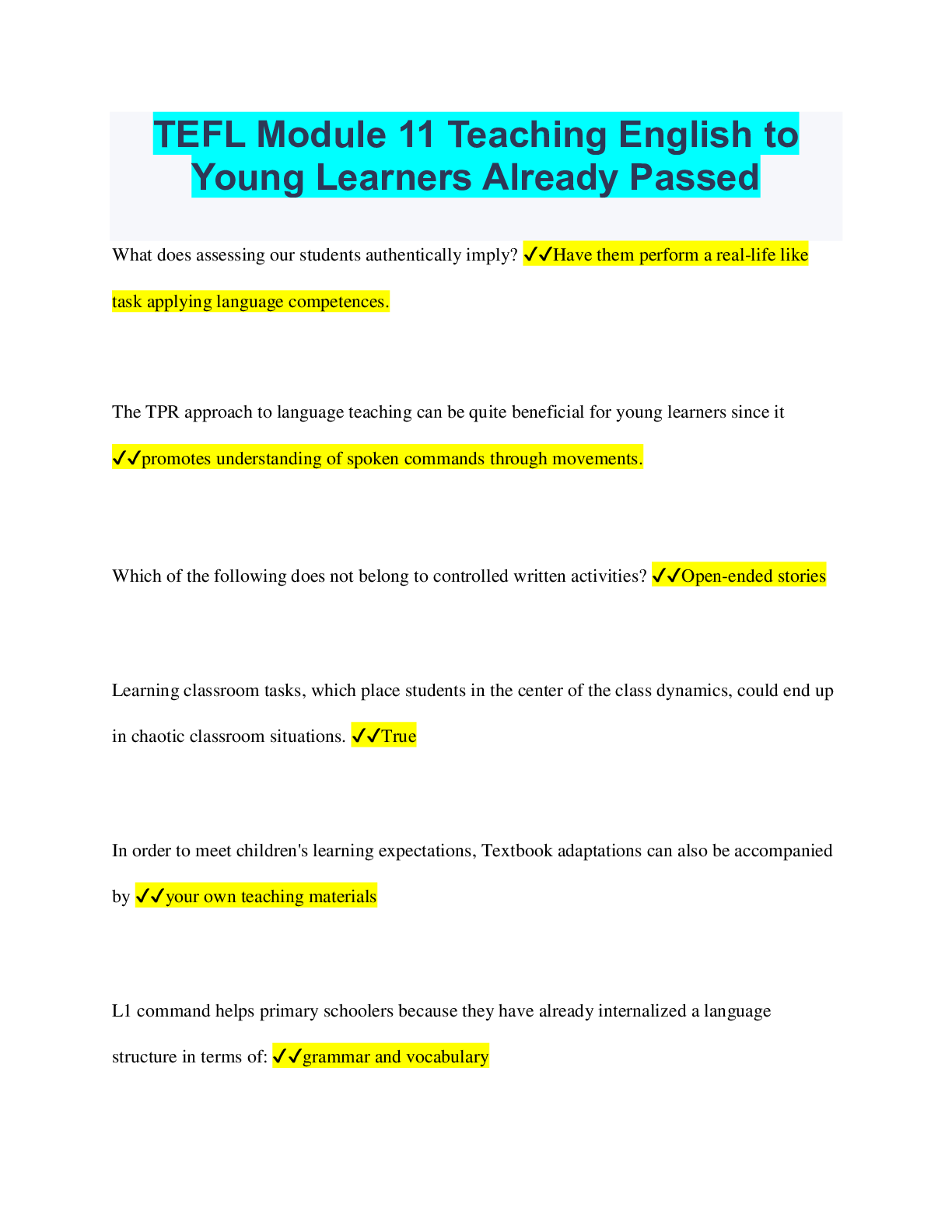
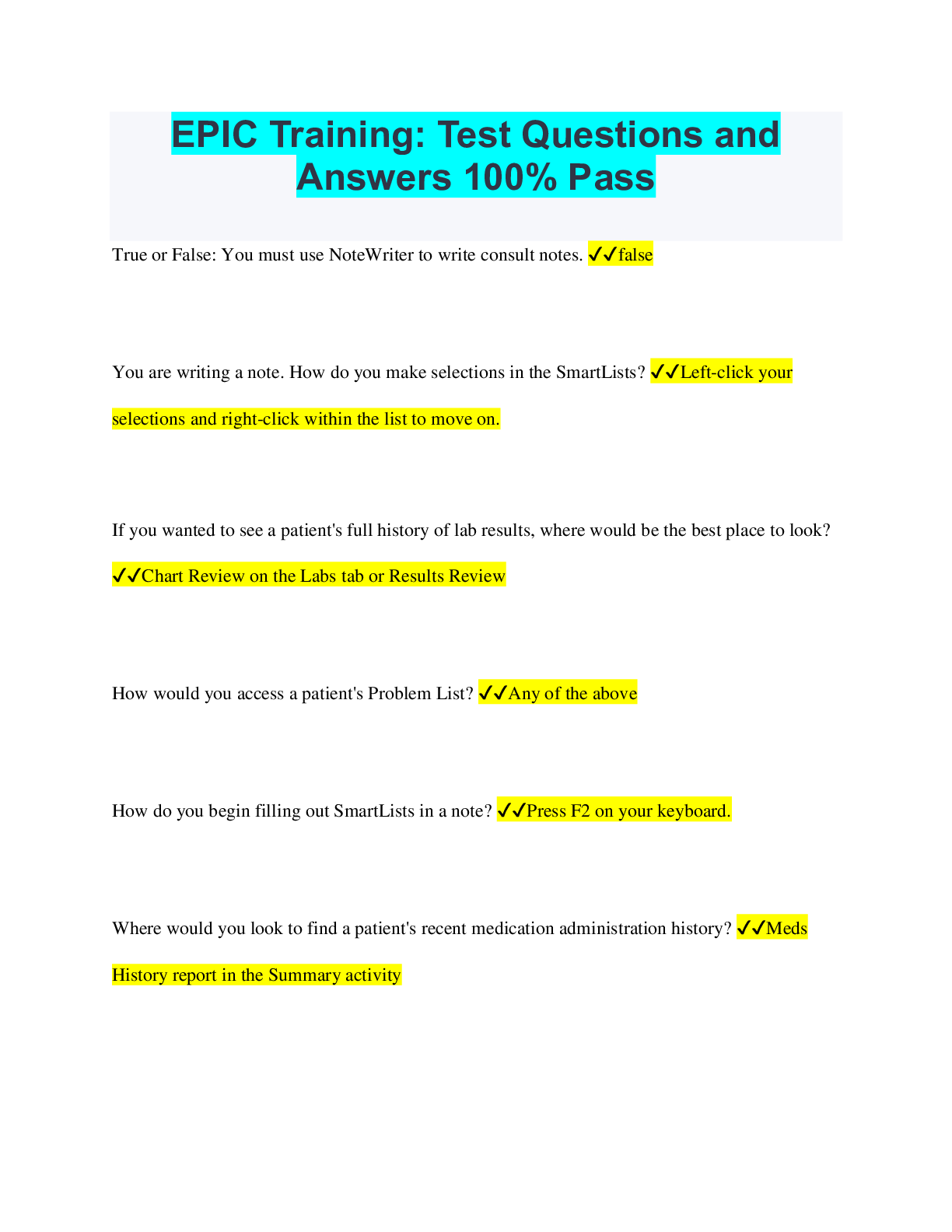
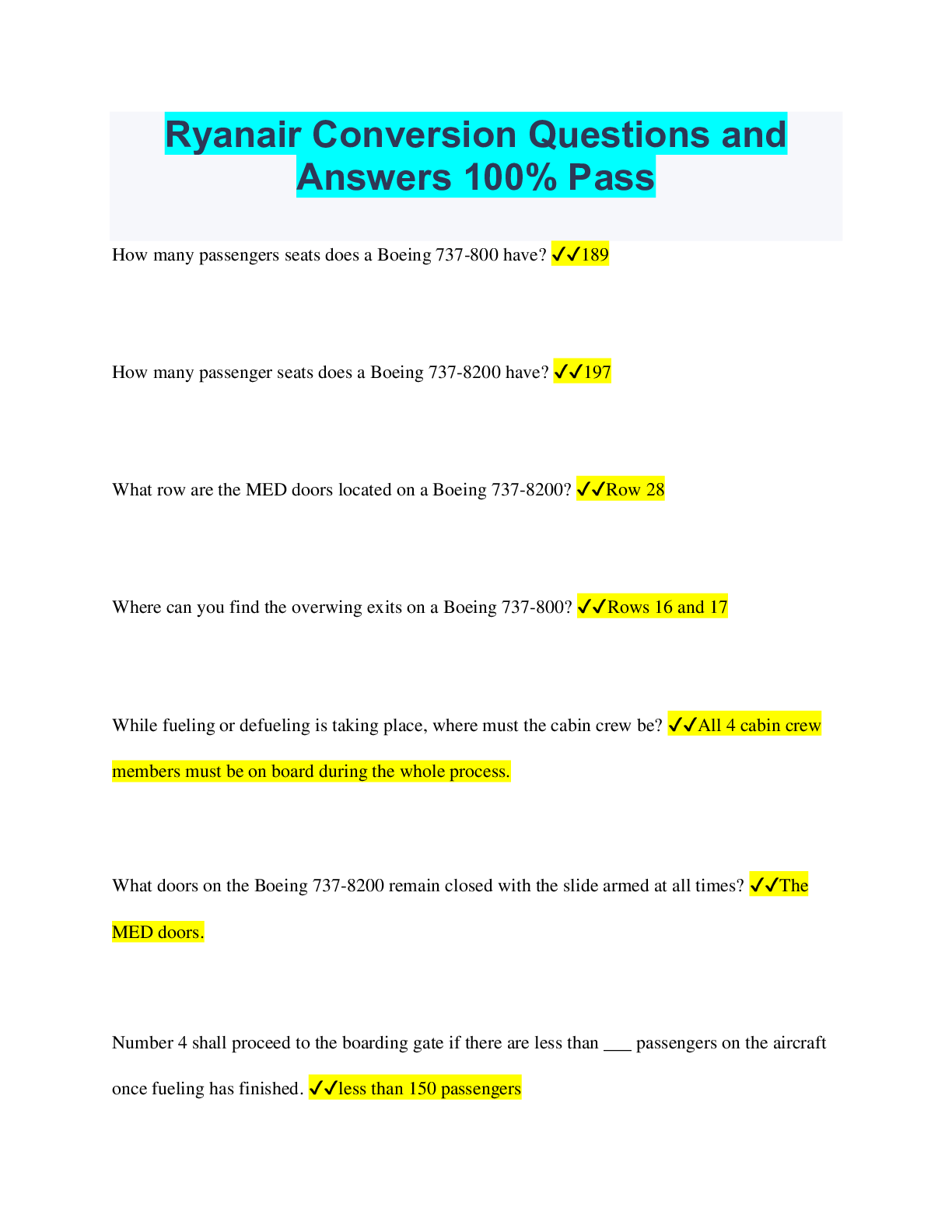
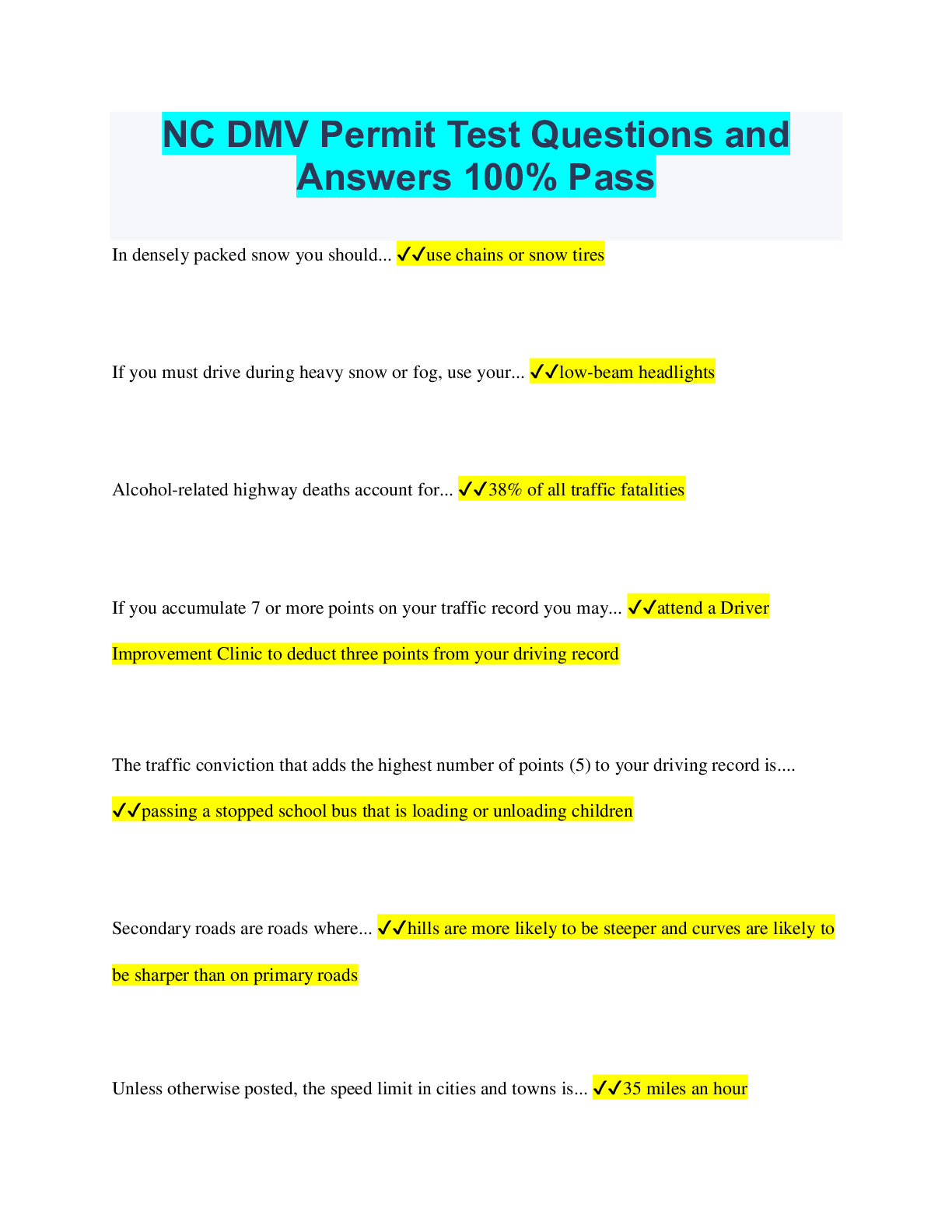
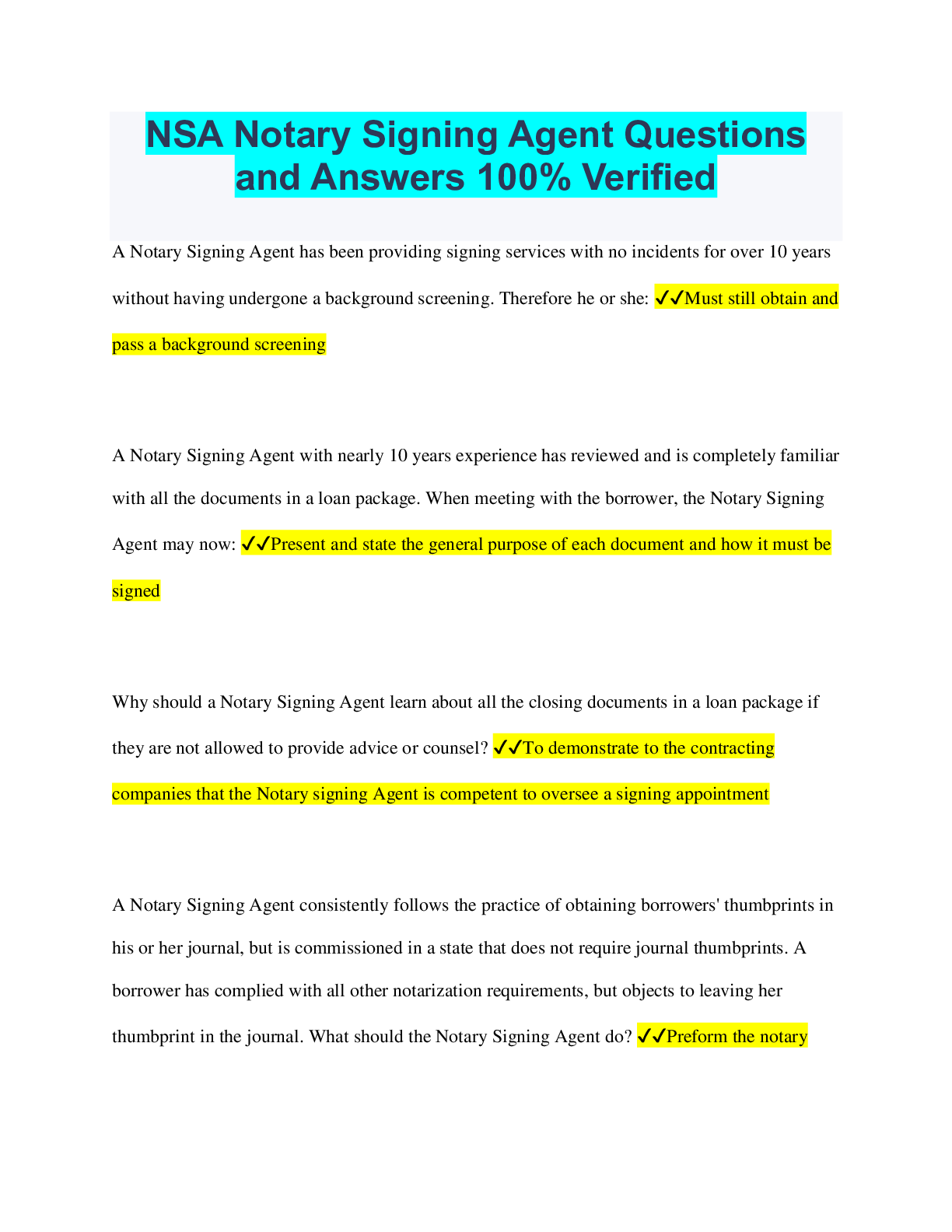
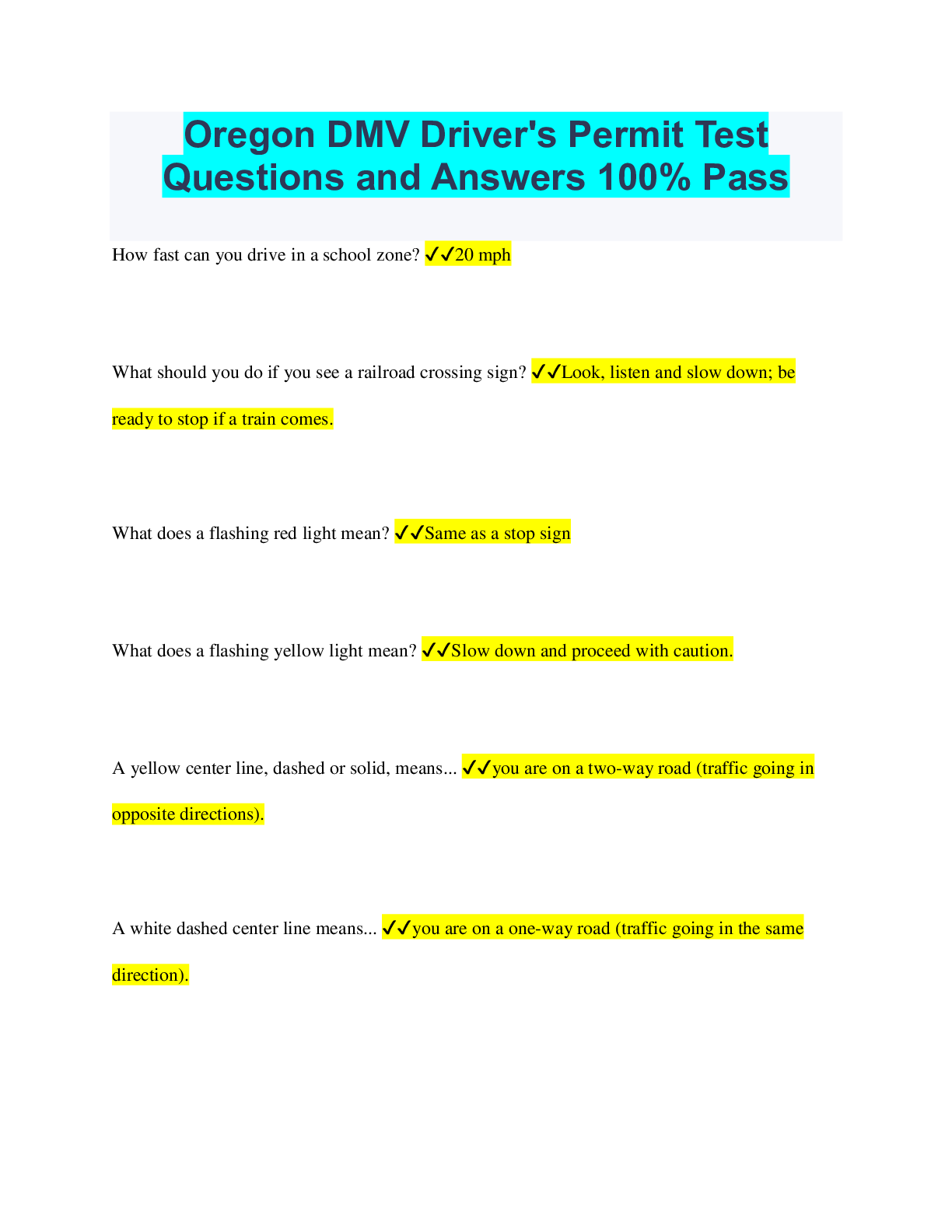
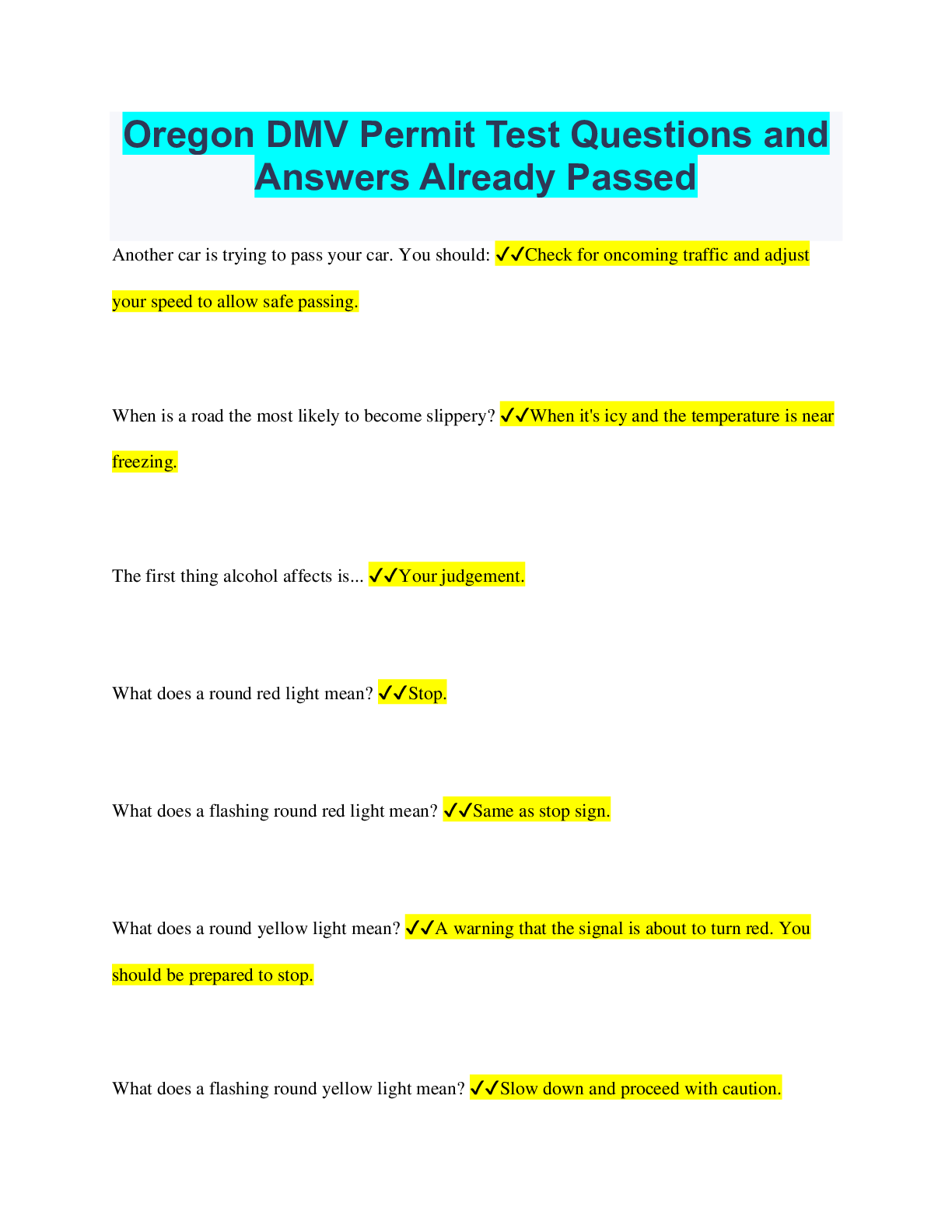
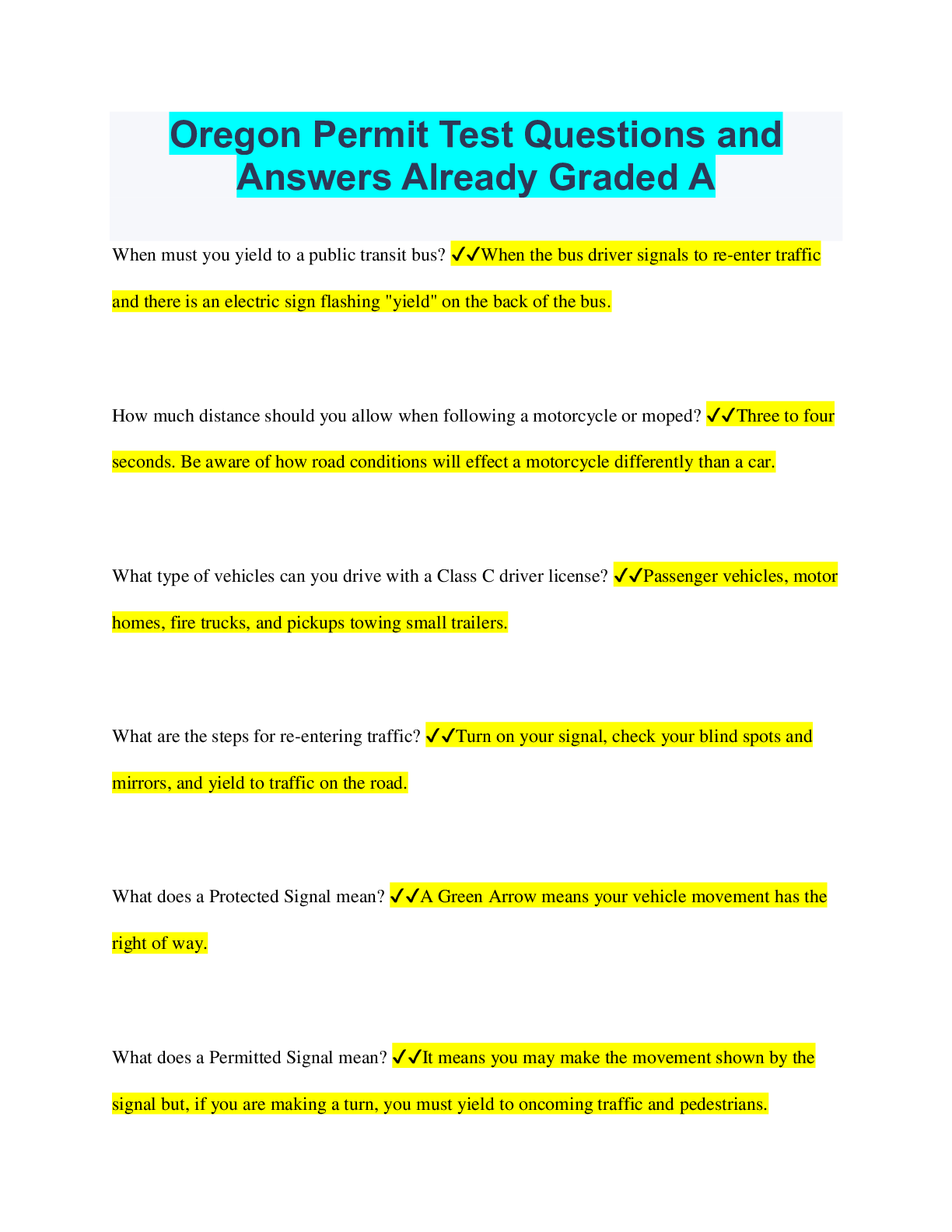
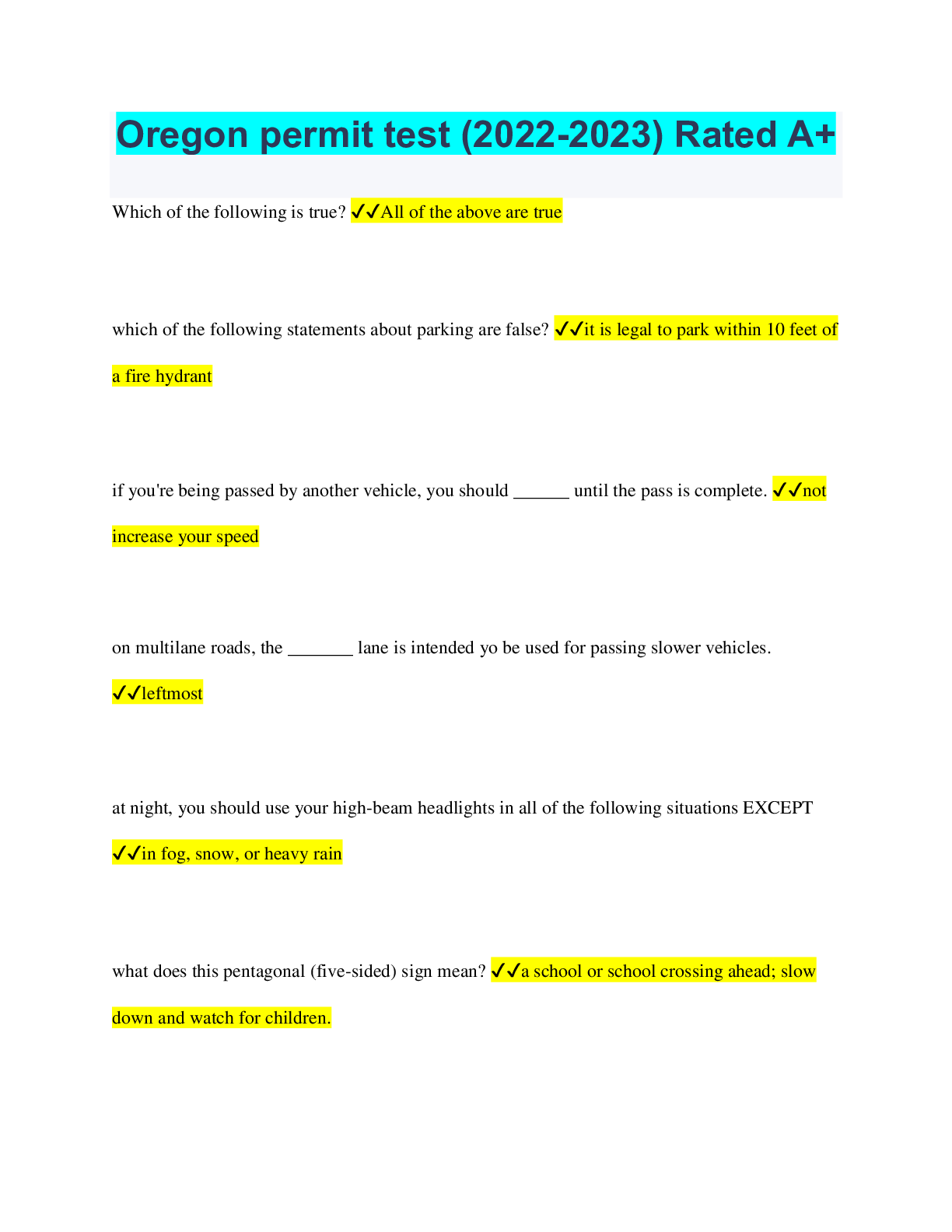
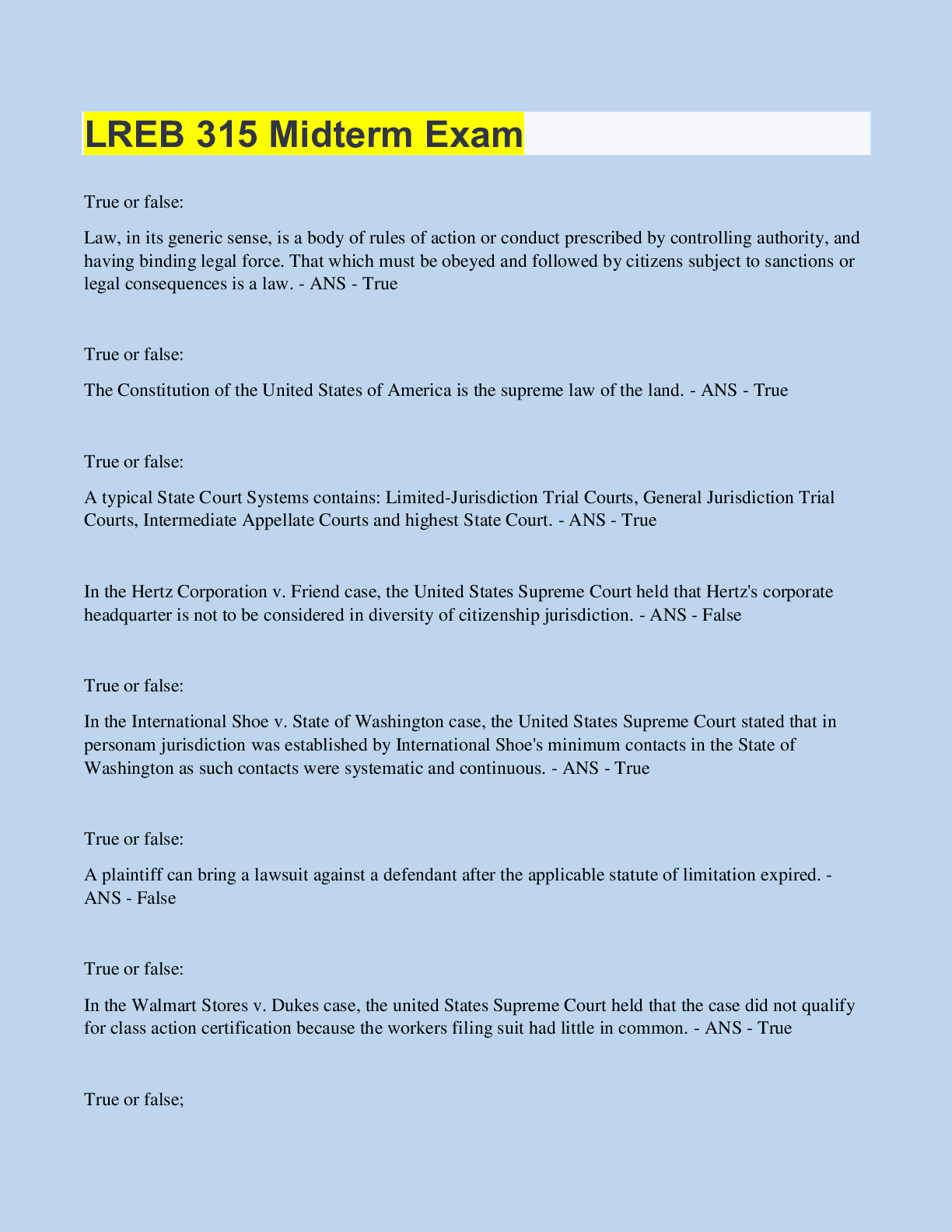
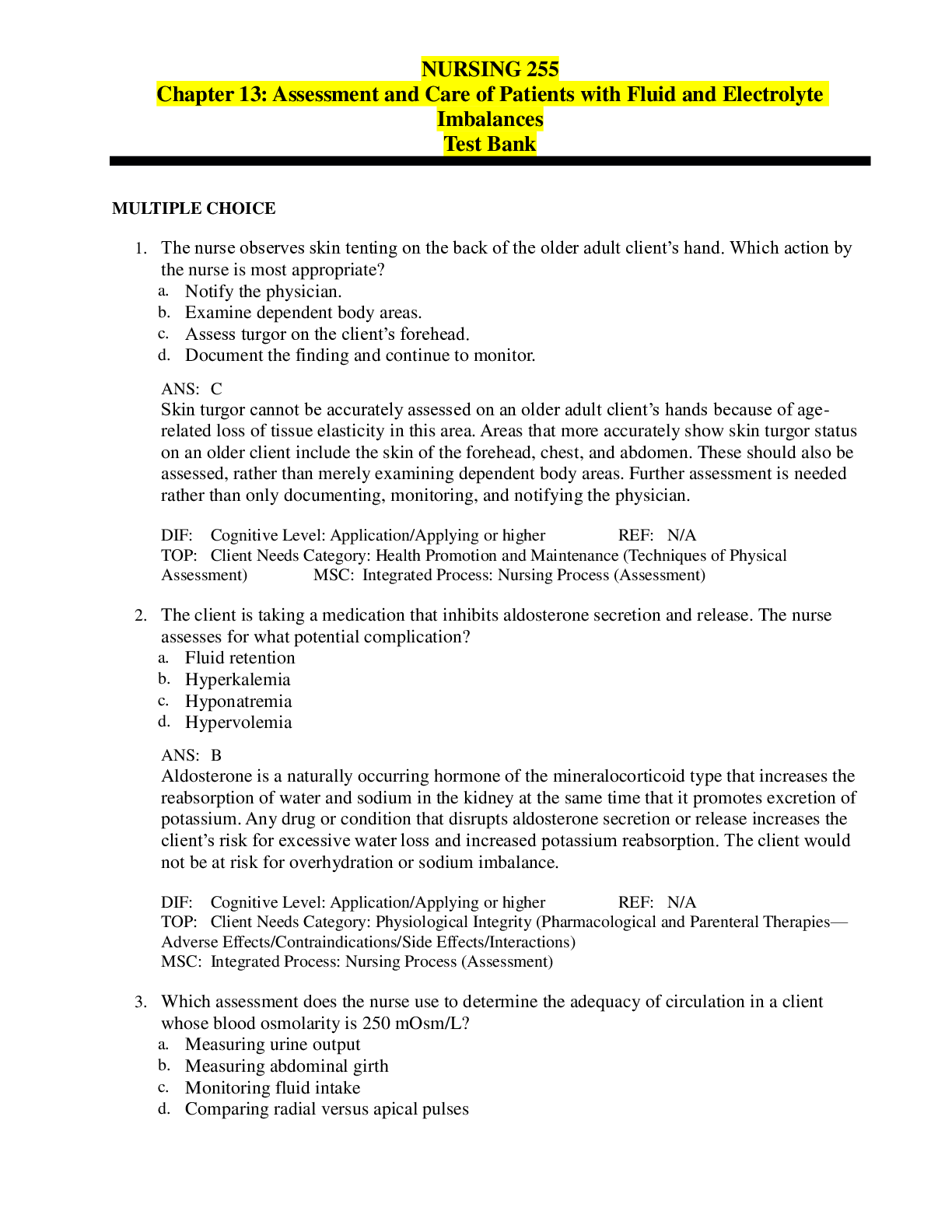


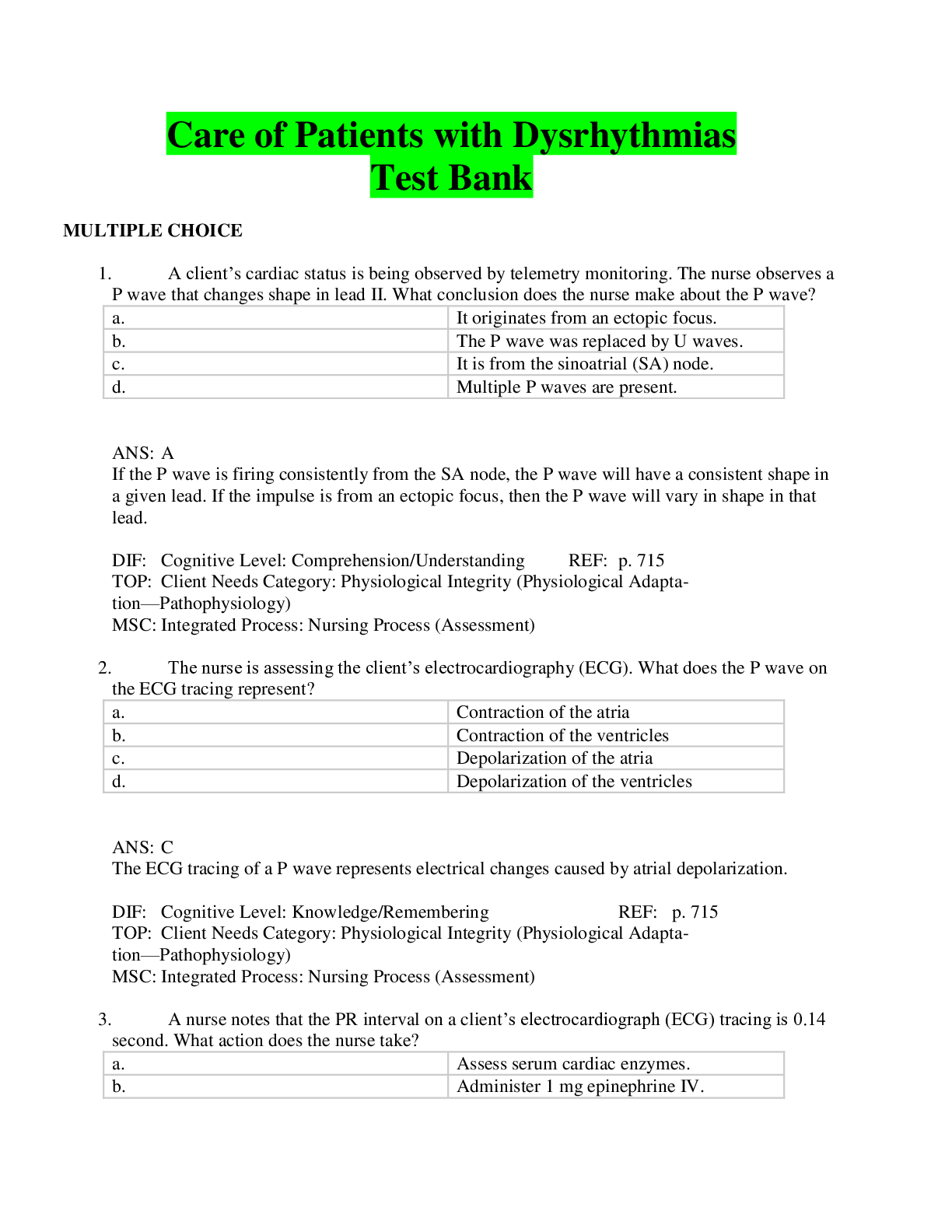
.png)






 and Autoimmunity, Questions and Answers with Explanations, 100% Correct, Download to Score A.png)

